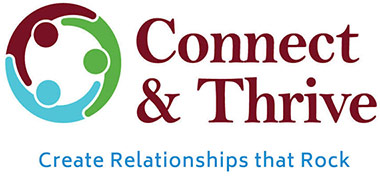The way we make promises, keep promises and change promises matters. A promise is an agreement about what we’ll do and how we’ll do it. Two of the biggest things that hurt relationships are when people stoically keep agreements that no longer work or break agreements without discussing it with those involved.
We are interdependent beings. To survive and thrive we rely on others. Take a moment to think about the various kinds of agreements that you’ve forged with the people in your life. They can range from practical agreements that keep life functioning, like who is going to balance the checkbook to agreements that touch our souls, like the emotional safety we can experience through exclusivity in an intimate relationship.
Even though we all know that people lose trust in us when we break agreements, I’ve done it and I’m guessing you have too. We are likely to break an agreement when it’s no longer alive or meaningful and we lose the motivation to follow through. When we tamp down our authentic needs and desires we’re denying the life force in us. It’s a powerful force that will get expressed one way or another.
A friend described being caught in a continual loop of irritation and resentment as she walked through the motions of honoring a commitment she’d made years earlier. Living in bondage to the past drains our vitality.
Life changes. What matters to us changes. Most agreements are time-limited. When we grow we are called to find meaning and purpose in new ways. Changing circumstances may lead us to new playing fields. An agreement that worked perfectly for everyone involved may not be a good fit any longer.
When you are outgrowing an agreement, you can count on uncomfortable feelings. A brilliant aspect of human architecture is that our feelings are our early warning system. When something is off, we feel it. We’re designed to feel it! When we move into, instead of away from, our uncomfortable feelings we arrive at the truth of what matters to us. Embracing our truth gives us the power to create a meaningful life. Remember when you were a growing kid and your clothes suddenly felt too small? Unless our families were in survival, we noticed that it was hard to move in a tight shirt or that our toes were being squished in our shoes. Not a problem- it’s time to get new clothes!
Don’t get me wrong- I’m a big believer in accountability. The first level of accountability is to ourselves. It’s up to us to discover the truth that wants to be known. We do that by connecting to our feelings and needs. Accountability also means that we attend with care and consideration to the needs of the other people involved.
Steps for making clear agreements and changing them with integrity:
1. Connect to your needs. What do you need to thrive? More creativity, freedom or relaxation? Don’t focus on the solutions or strategies. Needs are the essence of life moving in us. Use this list of needs compiled by The Center for Nonviolent Communication as a guide. Feel the energy as if that need were met in this moment.
2. Ask others involved to join you in an honest conversation. Let them know that you are raising this concern because you care about the relationship and want to find a way forward that works for everyone. When you express what is going on keep the focus simple. Describe the issue or what happened followed by your feelings and needs.
3. Invite others to share what is important to them. By listening with curiosity and openness you’ll discover the motivations, purpose and central needs that live in this unique human being.
4. Some cautions-
- Steer clear of the temptation to jump into brainstorming strategies. When you fully understand everyone’s needs, the most amazing creative strategies are naturally revealed.
- Beware of “should” or “demand” energy. When people deny their true desires and compromise or give in, you can count on haphazard performance or shaky commitment down the road.
6. Structure clear and specific agreements. Who will do what? When, where and how will they do it? If the agreement is oriented toward emotional safety and security, talk about what that looks like. If monogamy is important to you, get clear on the details. Does it mean no flirting? It’s the details that make agreements meaningful in moving our lives in the direction we choose.
7. Build in a way to assess how the agreement is working over time. Check in with each other periodically. The basic yardstick for measuring agreements is by connecting to our feelings and needs. Are we satisfied? Is this agreement still meeting needs that are important to everyone? Is the agreement giving us the results we hoped for?
Changing agreements with care and consideration means initiating an honest conversation and taking responsibility for your experience. As soon as you become aware of niggling feelings, go deeper and explore the emerging truth. If possible, avoid surprising people. Ask, “What can I do to support us all in moving forward?” Rather than making an independent decision to change an agreement, collaborate if possible.
To build healthy and resilient relationships it’s essential that we work together to find common direction. Navigating the making and changing of agreements with transparency, authenticity and accountability goes a long way toward building trust in relationships through life’s ups and downs.

